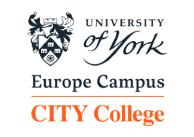MBA in Finance
Programme of studies
Cycle 1
Induction - Foundation Weekend
Understanding Organisational Behaviour
Business Economics
Developing Market Presence
Financial Reporting and Management Accounting
Operations and Supply Chain Management
Strategy Formulation and Business Decision
Corporate Financial Management
Cycle 2
Open Collaboration Tools for European Business and Sustainable Society
Leading and Managing People
Information and Big Data Management (online)
Research Methods
International Financial Management
Applied Risk Management
Dissertation / Final Business Project
Understanding Organisational Behaviour
The module introduces the concepts of organisational behaviour and their role in an organisation. Students become familiar with the main ideas and principles underlying the everyday functioning of organisations. This is achieved both through the theoretical part of the module, as well as with case studies, training videos and interactive games. ![]()
Business Economics
In an increasingly complex business environment managers are faced with problems and issues ranging from the relatively trivial to the strategic. In addition to using their judgment and experience, managers are asked to justify the decisions they reach on the basis of logic and hard analysis. In such an environment, the topics covered in this module have an important role. ![]()
Financial Reporting & Management Accounting
The module focuses on each of the two main areas of accounting, i.e. financial accounting, and management accounting within financial reporting and analysis. It also seeks to link these areas together so that they can be seen as part of a unified system. Students learn the different accounting and financial techniques which are to be utilised in effective decision-making, planning and controlling. Students learn how to analyse the accounting and financial information available and, thus, will become able to make sound accounting and financial decisions. ![]()
Operations and Supply Chain Management
Operations and Supply Chain Management approaches the topic from a managerial perspective. Each session introduces basic operations management concepts in a format that is useful for management decision-making. The basic terms, concepts and principles are covered, but they are examined in light of how they interrelate and interface with other functions of the firm. Each session includes examples and case studies to illustrate how logistics activities can be managed to properly implement the marketing concept. ![]()
Developing Market Presence
The main aim of this module is to introduce the basic concepts of marketing, their interrelationships and their role in the organisational context. Students will become familiar with the main ideas and marketing concepts, including market research, product development, pricing, promotion and distribution strategies. Marketing activities have not changed. The environment, however, where marketing is practised has changed considerably in the past two decades. Fierce competition, very short product life cycles, global markets, the internet and its applications create a very challenging environment for today's enterprises, where marketing has become indispensable. ![]()
Strategy Formulation and Business Decision
Unlike other business modules that concentrate narrowly on a particular function of business – accounting, finance, marketing, production, human resources, or information systems - strategic management is a big picture course. It cuts across the whole spectrum of business and management. The centre of attention is the total enterprise – the industry and competitive environment in which it operates, its long-term direction and strategy, its resources and competitive capabilities and its prospects for success. Throughout the module, the question addressed is "What must managers do, and do well, to make the company a winner in the game of business?".The answer that emerges, and which becomes the theme of the course, is that good strategy-making and good strategy execution are the key ingredients of company success and the most reliable signs of good management. The mission of the module is to explore why good strategic management leads to good business performance, to present the basic concepts and tools of strategic analysis, and to drill in the methods of crafting a well conceived strategy and executing it competently. ![]()
Corporate Financial Management
This module is concerned with encouraging the application of accounting fundamentals learning gained in year 1 of the Exec MBA to practical situations. The aim is therefore to reinforce existing learning, but the opportunity will also be taken to introduce new topics that will be found both interesting and useful in the area of corporate financial management.
Managers learn from experience how to cope with routine problems, but the best managers are also able to respond to change. To do this they need more than time-honoured rules of thumb; they understand why companies and financial markets behave the way they do. In other words, is needed a theory of finance with practical applications. ![]()
Open Collaboration Tools for European Business and Sustainable Society
In the aftermath of many societal, political and economic changes induced by recent events, organizations need to adapt their strategies and behaviours. One key word might be collaboration, by opening up business toward others including other businesses, individuals, institutions and/or society at large. The unit will explore collaboration techniques including open innovation, open strategy, and crowdsourcing as well as analysing collaboration possibilities with competitors, suppliers, customers, universities and institutions at different geographic levels including in respect of the intellectual property (IP) of each actor. ![]()
Leading and Managing People
The focus on human resources and their capabilities has never been more critical. Managing and leading people has become a critical success factor for organisations looking to become more effective. Since the mid-1990s, organisations have been going through rapid, fundamental and continuous changes in the way they do business. These changes have increased the level of complexity within both organisational and business environments. Whether one reviews these changes in terms of globalisation, reengineering, downsizing, etc., there is more and more evidence to suggest that focusing on how to lead and manage people can provide one of the keys to success. In this respect, this unit highlights the main ideas, principles and practices underlying day-to-day leadership and change management within today's organisational systems. Special emphasis is given on the way that scientific insights from complexity science, behavioural science and neuroscience affect leadership behaviour to create a competitive advantage. ![]()
Information and Big Data Management
Information plays a crucial part in most successful organisations. Information Systems (IS) and Information Technology (IT) are used to help improve administrative efficiency, to improve managerial effectiveness, and to provide competitive advantage. This situation has been brought about by the integration of computer and telecommunications technologies into information technologies (IT) and the subsequent mass availability of both cheap IT and the systems to exploit it in order to deliver the right information to the right people in the right format at the right time and at the right cost.
However in many organisations the gap between the theoretically possible and the reality is a wide one, because of ignorance, misconceptions, fears, prejudice or historical accident. Accordingly, an understanding of managerial information systems (MIS) concepts, applications & disciplines is essential to all managers if today's organisations are to bridge that gap successfully through rational rather than piecemeal behaviour. On the other hand, methodology underpins all substantive aspects of managerial change, including Information Systems instigated change. It reflects the reasoning processes and preferences of management professionals and, to an extent of the users with whom they interact. It also dictates, to a large extent, the kinds of systems that are produced and with which organisations have to work.
The issue of methodology has, therefore, serious implications for management professionals and for organisations generally. This methodology enables the identification of ‘systemically desirable’ change, and how information (i) serves organisational processes, (ii) serves the monitoring of organisational processes, (iii) serves the change process itself. ![]()
Research Methods
The course covers the following topics: formulating the research question, choosing an appropriate design, quantitative and qualitative approaches to research, designing interviews, using questionnaires, case studies and focus groups, and designing a research proposal and guidelines with regard to writing an MBA dissertation. In addition, students will take part in SPSS labs and learn how to use a selection of descriptive and inferential statistics. ![]()
International Financial Management
This module examines the international financial environment within which international businesses and multinational corporations operate. Students are provided with an overview of the movement of funds internationally, the structure and function of international financial markets, and exchange rate determination. This module also examines the theories of exchange rate equilibrium, the types of exchange rate risk, and its measurement and management. It concludes with currency and stock market crises and country risk analysis as a factor influencing foreign direct investment and the alternatives available to finance international trade.
Multinational enterprises around the globe face complexities that arise from the different financial and political systems. Market participants and financial managers are called to select the optimal combination among the financial instruments in order to achieve the best portfolio performance. Therefore, the selection of the right financial policy is closely related to the selection of the appropriate set of financial instruments. ![]()
Applied Risk Management
This course aims at providing advanced, research based knowledge in the area of finance and to assist in developing finance professionals that are aware, understand and can apply new cutting edge finance theory on their jobs. It starts by focusing on the topics of:
- Risk Management, especially it will deal with The benefits, concepts and processes of risk management, Risk analytics, statistical concepts (e.g. Value at Risk), data and technology, Basel II, etc.
- Investment strategies and techniques, the second topic aims to deepen student’s knowledge on advanced techniques in forming portfolios of financial instruments and evaluation of their performance and risk attribution characteristics. Especially it deals with investment issues such as Strategic asset allocation, Tactical asset allocation, Portfolio re-balancing, Active and passive investment strategies, Performance and risk attribution (e.g. performance and risk due to selection, timing or allocation).
- Merger and Acquisition financial evaluation.
and continues with:
Research methods for Finance, where students are provided with the ability to practically understand the methodologies used in quantitative time series analysis by introducing them to all the tools that are necessary in contemporary financial econometrics. At the end of the unit students should be able to critically evaluate the existing literature on the field and to conduct modern research design and execution. The ultimate goal of the unit is to enable students to produce a well thought out dissertation proposal and research project. ![]()
Dissertation / Final Business Project
Under the direct supervision of a member of staff, students will undertake either an Academic Dissertation which gives emphasis on developing new theory or testing existing one or a Final Business Project at a company or industry level of analysis chosen. Utilizing cutting edge knowledge, this project will integrate the learning that has occurred through the programme and apply it directly to current issues faced by business. Students will create recommendations and solutions based on the key issues identified. ![]()








